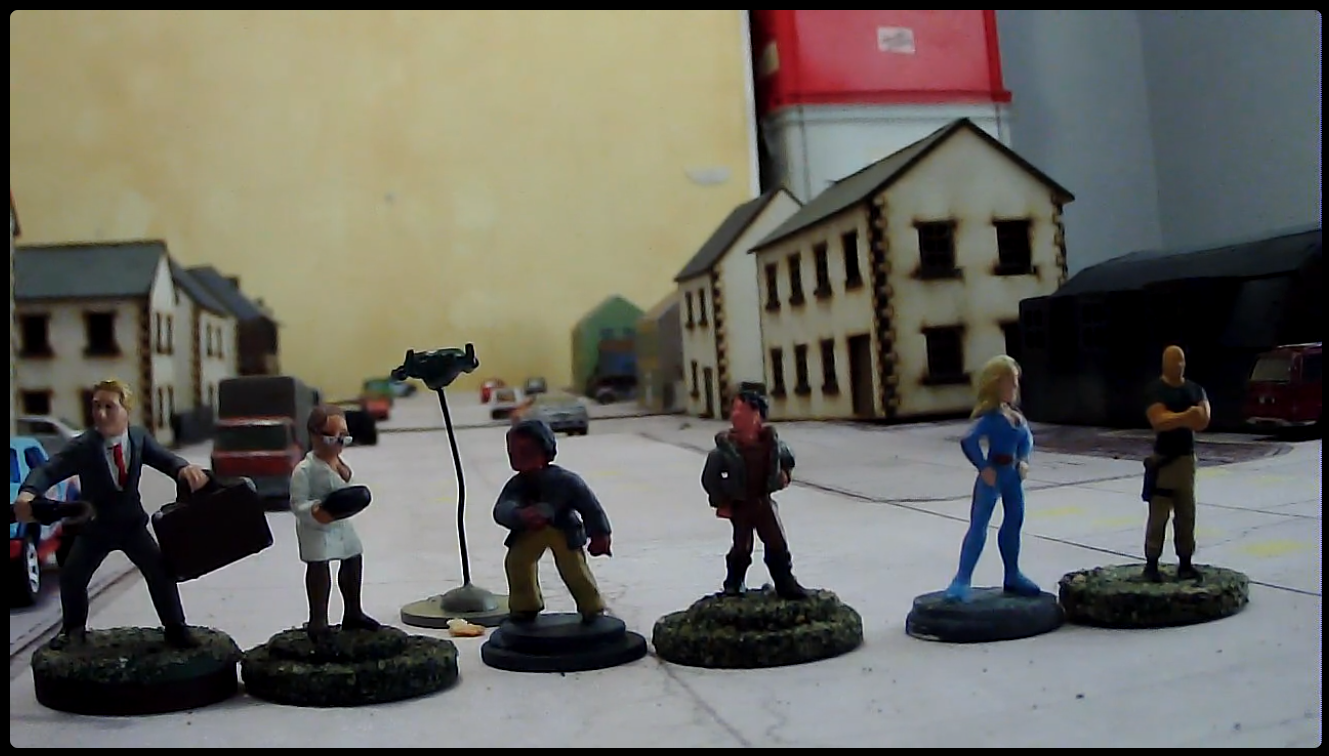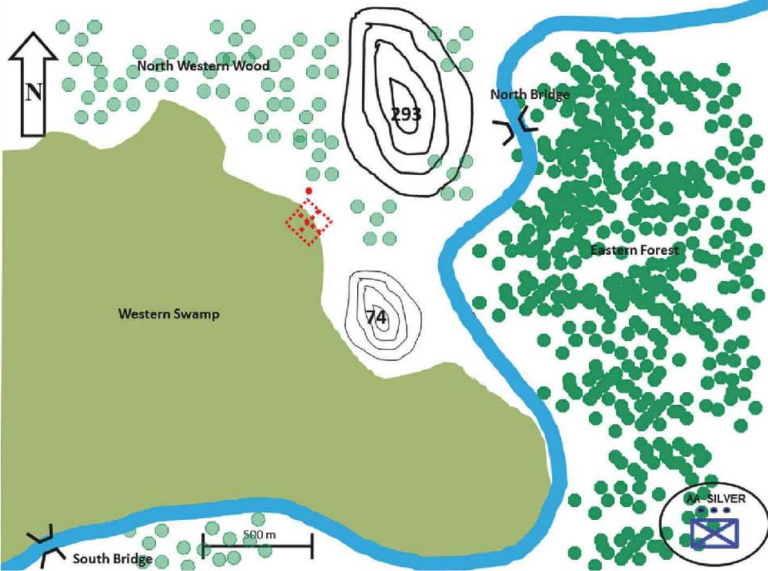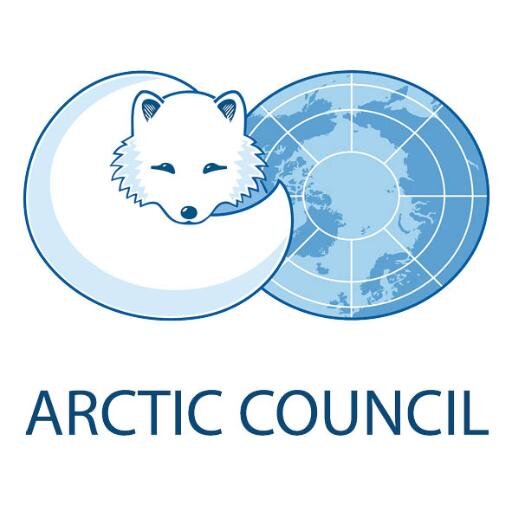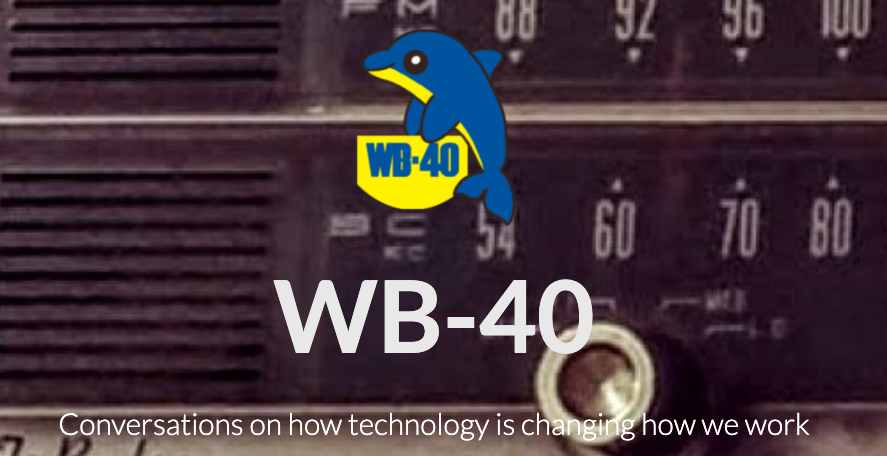My work mostly involves playing games?
Prologue
An intentionally browseable set of weeknotes from my previous week1 of work, with different subjects introduced by bold text. The subject matter might not seem appropriate because I think I’ve finally acknowledged that the dividing line between work and not-work is fairly arbitrary, and based on which account I’m using to talk to someone more than anything else. Because of the amount of business development I have to do, any traditional division like “am I being paid for this?” isn’t a useful way to define what category an activity fits in.
A summary of work in the last “week”:
Special Operations games with colleagues count as work don’t they? As an associate with a game design company, fairly geographically disparate, these are a great idea to enable us to get to know each other a little better, as well as try out different ideas. This was an interesting setup, which I’ve seen a lot of gamers I know use over the last couple of years - a standard figure based game, with all the scenery and models that go with that, but with online cameras specifically located to represent your point of view, much like a third person video game. I’m not usually into figure based games, unless it’s a literal one to one representation their use in general wargaming doesn’t work for me.
But in this context, where the figures are one-to-one, and the models are sufficient to feed your imagination, then I found this surprisingly enjoyable. Especially with the camera viewpoint representing what you can see - it moves away from the artificiality of “spot hidden” or “roll for perception”, as what you do or don’t see on the screen is enough.

Spectare Assemble.
In this game myself and my colleagues represented a secret Government unit, Spectare, that investigates when the standard methods of enquiry just don’t apply. As you’d expect from Stone Paper Scissors the games were played with simple mechanics, just enough to differentiate between characters and roles, but not too much to get in the way of actually playing.
Most prominently, this game was just fun. But also it allowed me to reflect on where I’m most comfortable playing this kind of multiplayer co-operative game. In this game I played the two medical personnel, effectively the clerics if this was a D&D party. This suited me, I was happy sitting back, advising on decisions, looking out for problems… much more so than my position in the previous game, where I was leading from the front. That last game which, appropriately, ended up with my character dying from a head wound.
I unsuccessfully pitched a virtual TEWT idea to a conference organiser. A TEWT is a “Tactical Exercise Without Troops”, traditionally a battlefield walk where aspiring commanders are asked what orders they would give, while they and their instructors are physically located on the relevant “ground” so you can see the distances and angles and cover involved.

A TEWT, lots of talking and pointing.
I imagined setting up an imaginary situation for a panel’s participants, say taking over as the security manager of an organisation, or having to escort a VIP to a conference, and then asking the panel for what they’d do, and iterating the scenario from there. I think having people display their expertise in response to specific contexts or prompts, rather than the kind of general or fireside chats we’re all too used to seeing; helps us all learn from their expertise, and will also help illustrate between those who talk a good game and who can actually “play”. I need to pitch this elsewhere, or consider doing something myself.
Tactical Decision Games are another idea that I keep coming back to. Thanks to TDGs being highlighted by UK Fight Club I’ve been meaning to put together some simple cyber security based examples to see what the response or interest is. A TDG is effectively a short description of a military scenario, provided as part of a training session. Once it’s been read by all present a junior member of staff gives the briefing they’d give to their troops in that situation. The other trainees ask questions, as does the trainer, and everyone learns through a discussion of a situation, rather than more abstract or conceptual learning.
I don’t have the military experience of them, I’ve just watched a couple of YouTube videos and downloaded a couple of guides to read. It’s just that, as with the TEWT above, they feel like a great format for cyber security practitioners to learn from each other. Also they test practical knowledge, and highlight how generic “good practice” needs to be thought through and adapted in specific circumstances.

A map from a Tactical Decision Game.
I played The High North Game, a professional wargame about governments clashing and negotiating over Arctic trade routes and other claims to territory as members of the Arctic Council, “the leading intergovernmental forum promoting cooperation in the Arctic”. I received the briefing for the game very, very late, so I was particularly pleased to have Jon on my team - who appeared to have some professional knowledge of the area, and Bob Cordery, a veteran wargamer with a penchant for research. Bob’s written up his experience of the game. As you can see from that Bob was particularly well briefed and well researched.
As it was a professional game, and we were exploring a situation rather than purely playing to win, I decided to “have a go” at being the leader of Canada. For a hobby game this would have been unsuitable, Bob has played these kind of leadership roles before, had much more information to hand, and knew the other players leading the other countries far better than I did. But I figured we should experiment a little, and see if there’s value in putting someone less decisive like myself nominally in charge of strategy and the final decisions. Also I think there’s a strong argument for game hierarchies reflecting, in some way, the hierarchies in the real world.
During the game it was interesting to see how the general attitude of other countries was reflected my willingness to deal with them. The USA and China were friendly, Russia were awful, and so I interacted with them to very different degrees. During the game Russia stuck resolutely to demanding sanctions were dropped before any further diplomacy could take place. I wasn’t sure if they believed this was a viable tactic, or whether their country was in such serious trouble that this was their only option. As with all of these games set at such a huge scale, especially in a near future context, I’m always conscious of how much we don’t know and haven’t been briefed on - most pressing for me was an understanding of the economic state of Russia. And something else that came up during the game, how high are the water levels now? And have those water levels resulted in Florida being flooded, which therefore could leads to a refugee crisis on Canada’s Southern border as everyone in the United States moves North?
Impending problems in the Arctic Circle, linked graphic from Business Insider.
I did learn a lot during the game about the situation in the Arctic, and the problems we can expect to emerge there in the near future. But also what a hostile environment it is beyond just being so cold, for example Bob pointed out the communications problems because there’s no geo-stationary satellites, and due to magnetic interference radio communications can be interrupted for minutes at a time.
As Canada my general strategy - if I had one at all - was to use good relations with China to leverage Russia, and iterate all other decisions on a turn by turn basis. And later, the Russian players were being particularly demanding and annoying, my plan was to stall and hope that the continuing sanctions would have the desired effect on their country. But again, this is where this kind of game can demand so much context, how effective are the sanctions? How long until we can expect them to take effect? And also, more relevant now than when I played this game, who is bypassing or ignoring those sanctions? And beyond that of course, another question that affects current decision making, if the current regime falls in Russia, who or what takes over? This kind of game is great for seeing just how interconnected everything is, and how, and bringing these questions into focus.

Indigenous peoples of the Arctic Circle in the Arctic Council.
We used Zoom for the platform, which was OK. I think due to my technical background I found it easier to navigate than most ( even though in my haste to get away from Russian awfulness I did click on “Leave Meeting” rather than “Leave Room” twice ). For keeping everyone separate I think Discord would have been better, with its permissions and lack of a main or default room, but there’s a relatively steep learning curve in putting players on Discord if they’re not familiar with it in some way, whereas Zoom has become something of a default over the last few years.
The AAR, or After Action Report, was enlightening. It was good to learn how the Arctic Council actually worked, and how closely that was followed in the game. Also we all learnt how many of us had asked Control, the people running the game, how we could exclude countries from the Arctic Council, or dissolve the Arctic Council, or establish an alternative. A benefit of this kind of game, with the right players, is learning how your actions were interpreted elsewhere. My easy-going Canada was described as intransigent, and I learnt my pro-ecology voting was regarded by the more southern players, such as Japan and China, as specifically ignoring them and being ignorant of their economic requirements - which was probably true, but unintentional. I don’t know if pushing the more knowledgeable players out as negotiators, with me as the leader, led to this - but that’s something to play with in future games.

A valuable alternative to more military ways of expressing different opinions.
My work life isn’t just playing games, which the above sections imply, but I mostly can’t share details about the game design I’m involved in. This next entry is an exception though:
I attended a Connections NextGen GameJam, sponsored by Imaginetic - which was a really interesting concept. Basically going from an initial wargame concept to some kind of working online version, that needs to be playable for a turn, in about three hours. It was a little stressful but I really liked the “clarity of vision” forced by this short deadline. You don’t have time to brainstorm too much, and if you and your work partner had a different idea there’s no time for rewrites, the two ideas need to be blended together. I was lucky in that I was paired with Baptiste from the Strand Simulations Group, I like to think our blend of formal and informal experience worked well.
Annoyingly, I think this event finally convinced me that playtesting a game early and often is the way forward. Something I should really know anyway, especially due to some conversations I’ve had with others ( you know who you are ), but I think this event sealed it for me - just build something and play it, no matter how terrible it might be. This session particularly inspired me to take the GameJam game further to become Alpine Blockades, as well as taking my High Fantasy Football concept further. I really need to get my online games platform built… as well as everything else I’m doing.
I appeared on the WB-40 podcast, you can catch my episode here. Of course afterwards there’s many things I would have preferred to have said better, or just paused the world while I looked up a reference, but I think it came out pretty well2. If you’re interested in thinking through decisions before you make them, do listen in.

The WB-40 Podcast.
I enjoyed Connections Online, an online wargaming conference. If you’re interested in professional wargaming, or professional game design, it’s definitely worth attending in future and catching up with previous presentations. Due to the theme this year there was a lot of discussion about Red Teaming, about what it is, with many people offering their own definitions. I understand the emphasis on face to face for the forthcoming Connections UK and other conferences, but I think not pushing remote, or tackling hybrid, is an opportunity missed by the wider wargaming community. As well as many other communities and industries of course. And personally I love how this conference is run online through Discord and YouTube, so if I’m late I can just “2x” the presentation until I’m up to speed, or if something comes up I can pause the stream. Online interaction and near-synchronous communication gives us so many advantages.
While I mainly listened to presentations I did attend an interactive session where we were taken through the “six empathic questions”, a standard military technique of situational analysis, but thinking as the Empire from the Star Wars franchise. I found this very illuminating, and wrote up some thoughts on LinkedIn, which you can find here.
The only other wargaming presentation I’ve caught recently is a Kings College London online talk by Dr. Zhu. This was a little too meandering for me, but it should be on their YouTube channel, so catch it and see what you think. I hope to make time to watch it again, there were a couple of points I need to consider and quickly blog about when it goes online, I’ll update this post when I do. One thing I really did appreciate on it was video games getting the level of attention they deserve as complex works of art.

Psychological Safety is an important but complex subject.
I attended a Psychological Safety meeting, which was, frankly, lovely. I was particularly impressed with how the two main hosts, Cherise and Patrick, just set the tone from the very beginning, very welcoming, very friendly, really accepting. We were split into small groups for exercises and discussions, which was especially enjoyable. While it’s indicative of the kind of people interested in a meeting on this theme, I was still surprised at how quickly we were able to be so open with each other, and productive too. You can find out more about these meetings here.
I’ve been bouncing around some ideas on measuring psychological safety in elite sports teams, and thinking around how to use wargames to prepare to protect your team from the effect of that, or take advantage of related weaknesses in your opponents. If that’s a field you’re involved in, please do get in touch.
Further to psychological safety I watched Matt Ballantine speak with subject matter expert Tom Geraghty - there were many useful points in this, and I really liked the emphasis on how these techniques will make a company more productive. Also the emphasis on taking good practice from other industries, Crew Resource Management from airlines being notable but inevitable.
Most recently, I participated in a Wardley Mapping exercise of CyberSecurity, having had the good fortune to spot it being advertised on Twitter. It was good to experience Simon Wardley himself facilitating this, and to see how his employer Leading Edge use these kind of exercises to decide where to take conversations next. Also it was good to see the most being made of virtual capabilities - like the Psychological Safety Meetup listed above, 70 people on a Miro board just doesn’t work in a physical meeting. They’ll be more thoughts on this in a future blog.
An example of a Wardley Map.
Epilogue
It’s been useful to look back over these notes, some of which are months old, and decide that a separate work themed blog really shouldn’t be on a separate “work” platform, or look more professional… whatever “professional” means. Everything I do kind of informs everything else I do, and the line between what is and isn’t work-related for me has been pretty thin for over twenty years.
Also, just looking back at my calendar, I realise how many events I’ve missed. With a mindset of regarding each blog as “a search query to find your people” I really ought to get posts out more often, and keep them shorter.
If you’d like me to help you think through decisions, or design a game for you or with you, or just discuss anything above, my work contact details are on my Path Dependence website, which is desperately in need of updating… but that’s a discussion for a future piece.
-
In weeknotes terms a “week” is the time period between when I last wrote a relevant set of weeknotes and now. ↩︎
-
Apart from my episode the WB-40 podcast is worth listening to in general. From the ones I’ve made time to go through recently try Episode 248 to see what predictions for 2023 they’ve got right so far, and 257 on Matt’s PlayCards concept. ↩︎
